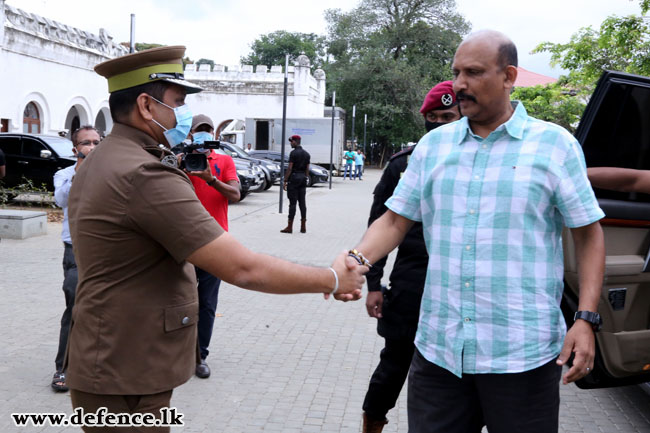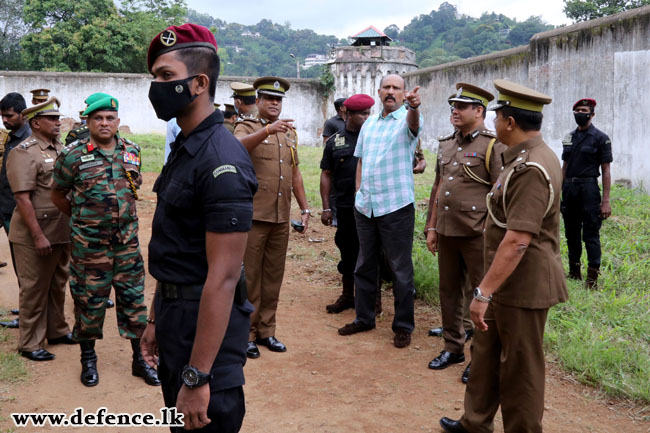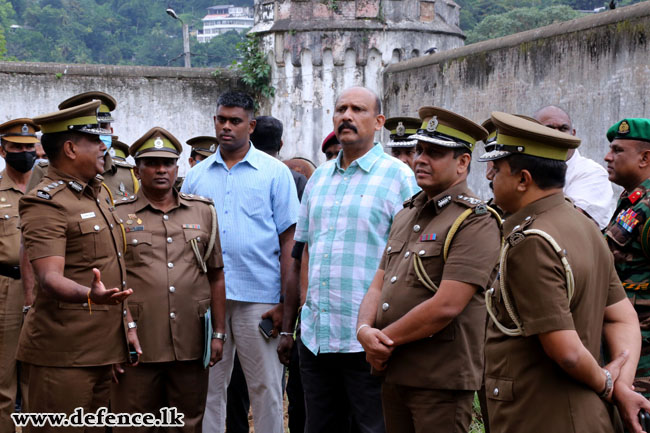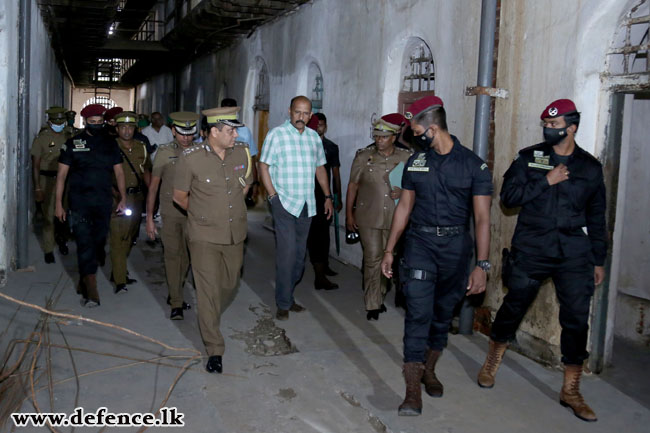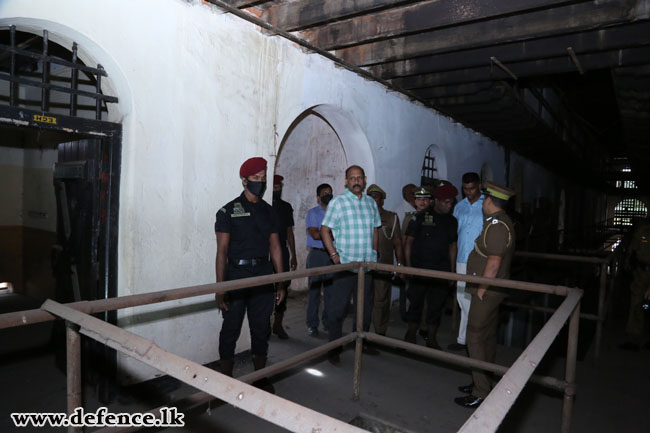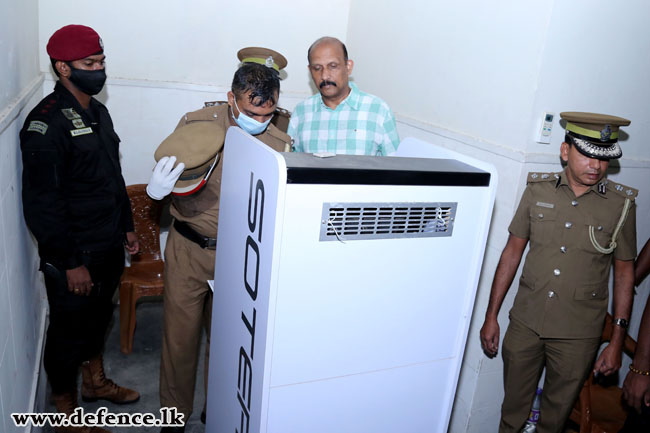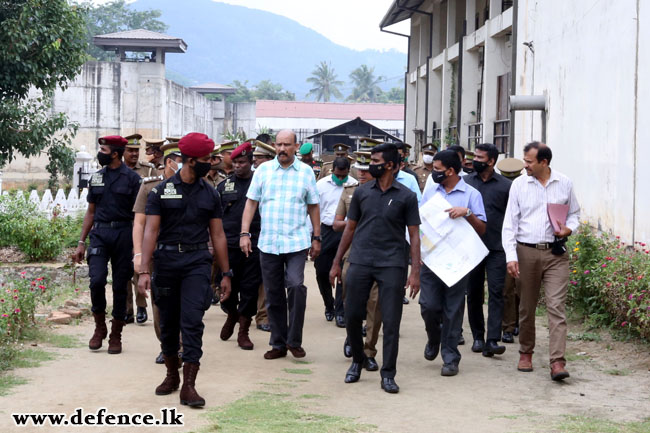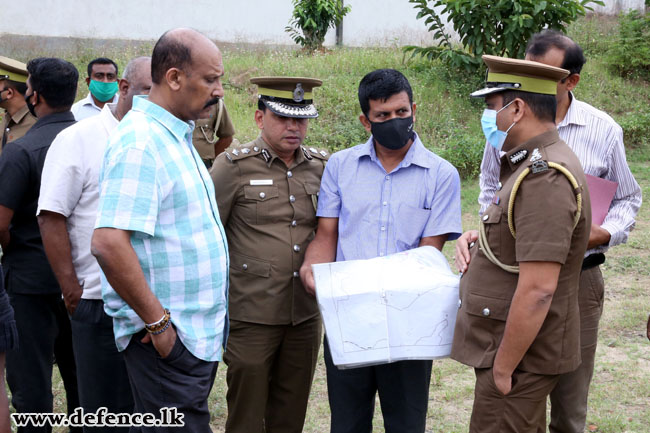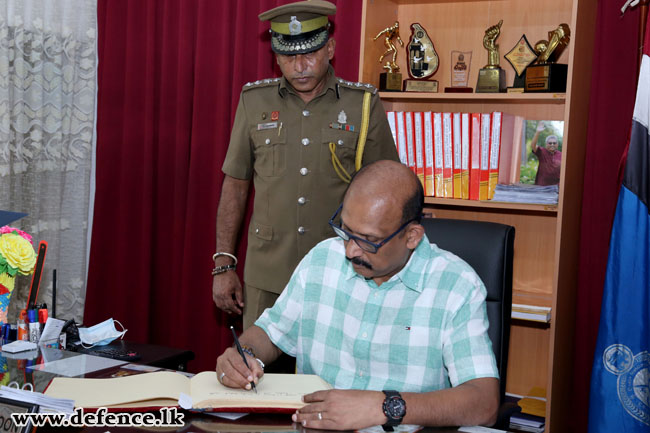Govt. seeks public support in curbing organised crimes
September 12, 2020- Needs more space in prisons to accommodate the increasing number of prisoners with intensified raid.
- Plans for strengthening the reward system for public informants.
- Punishments for all criminals from small scale drug dealers to drug kingpins.
- Plans for more opportunities for rehabilitating drug users.
- Bogambara prison to be renovated.
Defence Secretary Maj. Gen. (Retd) Kamal Gunaratne has sought public support to curb organised crimes, which has given a top priority in the government vision to make a safe and secure nation.
He said the government would not tolerate all forms of crimes and would punish from drug user to notorious drug kingpins while giving more concerns on rehabilitating drug addicts to reintegrate them back to the society.
Defence Secretary told the media after having an inspection tour at the Bogambara Prison in Kandy, today, that the government intends to expand the spaces in country’s prisons to solve the issue of overcrowding in prisons.
“With intensified raids on drugs by Police together with the STF, overcrowding in prisons has become a serious issue now. Prison’s spaces need to be expanded to accommodate them,” he said.
He said the government’s intention was to establish a well-designed rehabilitation program for drug addicts to reintegrate them back to the society as normal citizens.
“In our efforts to have a secured nation, the government needs the support of the people to protect the future generation from crimes, especially the drug menace,” he stressed.
Defence Secretary also emphasized the government's intention to strengthen the recently introduced reward system for public informants as an important aspect of curbing organised crimes, especially in drug smuggling.
Maj.Gen. Gunaratne said although the prisoners were put behind bars, they were also human beings and citizens of Sri Lanka. “The facilities are there in the Bogambara Prison to restart but need some renovation,” he said.
Responding to a question on hunger strike commenced by some notorious criminals at the ‘Boossa High-Security Prison’ he said the demands by some most wanted criminals were unreasonable but the prison authorities would only look into some of the reasonable appeals.
He said only LTTE’s Thileepan, who was suffering from a life threatening illness had died in a fast unto death but all other attempts were stopped halfway after the third or fourth day of the strike.
